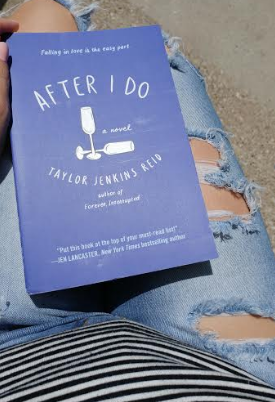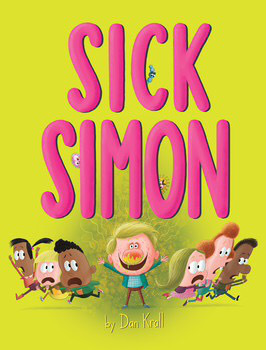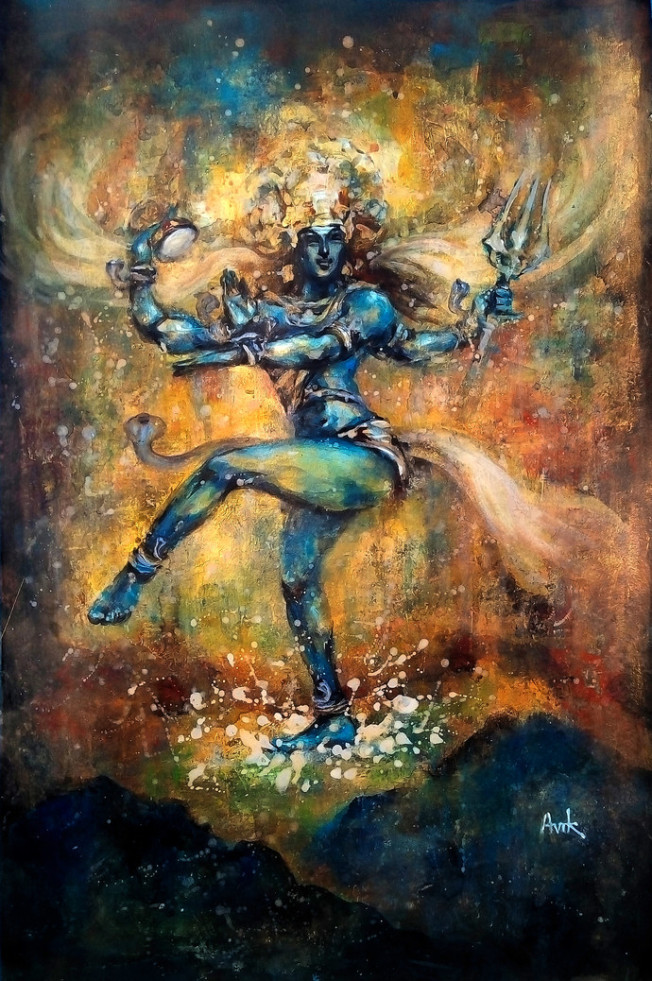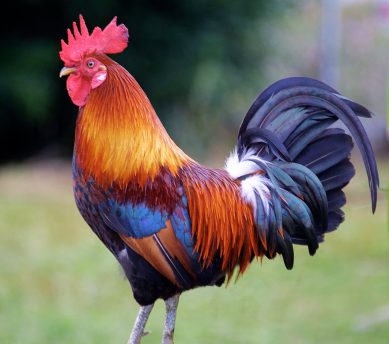
“My Name is Lucy Barton” a novel by Elizabeth Strout
There was a time, and it was many years ago now, when I had to stay in a hospital for almost nine weeks.

Lucy Barton goes in to have her appendix out—a rather routine procedure that turns out to be anything but routine. Complications lead her to be in the hospital for nine weeks. During that time, her estranged mother comes to visit, staying at her bedside, at times almost feeling like an apparition from Lucy’s past as they both pull up stories of people and places from their fragmented yet shared history. Below the surface of their conversations lays a thread of tension that has been present throughout Lucy’s life. The more they talk to, at and around each other the more that tension flashes to the surface before disappearing into the depths of time once again. This novel reminded me of Dani Shapiro’s memoir, “Hourglass.” They both explore time and the passage of time in such a beautiful way, the way it informs our lives and how we move through it together and, ultimately, alone.
A sentence I love: “Maybe it was the darkness with only the pale crack of light that came through the door, the constellation of the magnificent Chrysler Building right beyond us, that allowed us to speak in ways we never had.”
“Hunger- A Memoir of (My) Body” by Roxane Gay
Every body has a story and a history.
From the first sentence, Roxane Gay takes on through the intimate story and history of her body, as she sees it, as she looks back on it, as she experienced it and as she continues to experience it.
While her life could decidedly be broken in half after a horrific act of violence between before and after, Gay spirals her story back and forth through time, edging closer to something then backing away again, the way we often do with our own history.
This is a powerful, vulnerable and incredibly honest look at one woman’s relationship with her body, how she inhabits it, how she doesn’t, how she moves through space, how she doesn’t and how people and society at large respond to her and how they don’t.
A sentence I love: “I live in a contradictory space where I should try to take up space but not too much of it, and not in the wrong way, where the wrong way is any way where my body is concerned.”
“We All Looked Up” a YA novel by Tommy Wallbach
“It’s not the end of the world,” Stacy said.
It’s not, at least not at this particular teenage angsty moment that Peter is turning over in his mind. But the meteor that they soon learn is headed toward earth could possibly be the literal end of the world. President Obama went on television and told them as much. He said they had about two months left. Two months? To do what? There was no way to prepare for such an event. Nowhere to hide, no where to be safe. So what do you do? Go on living your mundane life, going to school, doing homework, studying for tests? To what end? If there is no future to work toward, how do you spend your time? These are questions that a group of high school students must wrestle with not only theoretically, but in reality. Each chapter tells a different point of view until they weave together to reveal a story of what we do in the face of death, something we do at some level every single day, but how do things change, how do people change when it no longer is some vague prospect way off in a very distant future but is coming at you within the space of two months?
A sentence I love: “Every other human quality was hidden easily enough—intelligence, talent, selfishness, even madness—but beauty would not be concealed.”
“Turtles All the way Down” a YA novel by John Green
At the time I first realized I might be fictional, my weekdays were spent at a publicly funded institution on the north side of Indianapolis called White River High School.
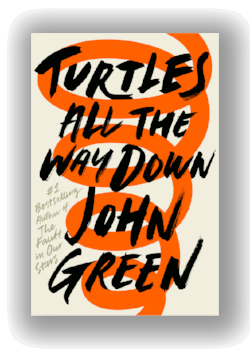 Part love story, friend story, mystery as well as a deep exploration of what it means to grieve, to lose, to deal with mental illness, John Green weaves these all together in my favorite book of his to date.
Part love story, friend story, mystery as well as a deep exploration of what it means to grieve, to lose, to deal with mental illness, John Green weaves these all together in my favorite book of his to date.
Aza struggles with anxiety. Because much of the struggle is on the inside even her Best and Most Fearless Friend Daisy has trouble comprehending the depth of Aza’s pain.
When a billionaire goes missing and a hundred-thousand dollar reward is offered for info leading to his return, Aza and Daisy jump into the mystery unaware of what exactly they are getting themselves into.
Green gets into the psyche of today’s teens with his usual grace and the way he allows us access to Aza’a mind as it continually spirals out of her control is something that will stay with me for a long, long time.
A sentence I love: “I wanted to tell her that I was getting better, because that was supposed to be the narrative of illness: It was a hurdle you jumped over, or a battle you won. Illness is a story told in the past tense.”
“Teaching People, Not Poses- 12 Principles for Teaching Yoga with Integrity” by Jay Fields
As for many people, my yoga teacher training changed my life.
This slim volume packs a lot of wisdom for the new or seasoned teacher. Each principle is followed by suggestions on how to actually use the advice she gives. I felt like I walked away with tools I could use to be more grounded in integrity as a teacher and also as a complicated human with my own set of flaws and gifts and challenges.
A sentence I love: “It’s about playing your part to help create a world full of people who have the courage and the spirit to set aside fear and to live in alignment with their deepest, truest most full self.”
Advertisements Share this:

